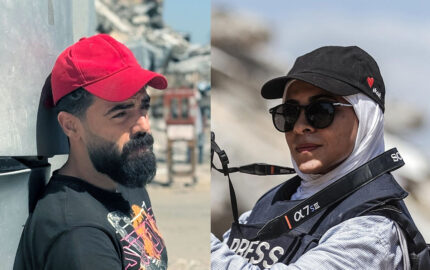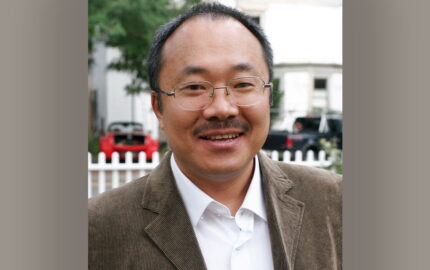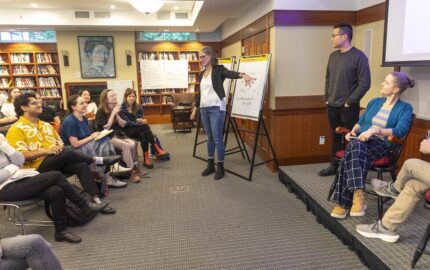Piero Benetazzo, a 1982 Nieman Fellow, died January 11, at home in Rome 13 months after he was diagnosed with a brain tumor. He was 78.
Benetazzo was the first Italian journalist to win a Nieman fellowship. His wife, senior European correspondent for NPR Sylvia Poggioli, described the breadth of his reporting in the obituary she wrote: "Piero spent his working life as a foreign and roving correspondent, first with the ANSA news agency in Vienna, Prague and Bonn, and then as one of the founding members of the daily La Repubblica—where his assignments ranged from the American hostage crisis in Tehran, the Solidarity strikes in Communist Poland, intifadas and famine in Ethiopia, to a Vietnamese offensive against the Khmer Rouge, civil war in Angola, the Iran-Iraq war, the collapse of Siad Barre’s Somalia, and Chile under Pinochet.
Together, we covered the fall of the Berlin Wall, the Velvet Revolution and the disintegration of Yugoslavia, and, more recently, the euro-zone crisis in Southern Europe."
Benetazzo was based in Prague from 1963 to 1968, when he moved to Moscow. He returned to Prague on August 20 that year to pick up his remaining belongings. "When Soviet tanks entered the city after midnight, Piero was perhaps the only Western reporter in town," Poggioli wrote. "He knew where to find teletype machines before the Soviets could shut them down. For the first 24 hours, his reports for ANSA were picked up across the world. Piero stayed in Prague for a few months to report on citizens’ resistance to the invasion and the gradual re-imposition of hardline rule—the so-called 'normalization.'
"Piero’s coverage of the invasion and its aftermath earned him a virtual expulsion from the Soviet Union and the normalizers in Prague officially designated him an enemy of the Czechoslovak state.
"It was not the first time he had angered the powers-that-be with his writing. When he was studying at Padua University, Piero and a group of friends in his hometown Belluno in northern Italy, published a satirical paper that lampooned the bigotry and provincialism of Italy in the ’50s. The town notables were not amused and convinced a local priest to file a formal complaint against the satirical publication for 'offending public morals.' The authors were tried, convicted and sentenced to a hefty fine."
Benetazzo and Poggioli met in May 1973 when he went to Rome for a journalists union meeting at ANSA. She was working for the agency’s English-language news service and he was the union representative for the foreign correspondents.
Like most foreign correspondents, Benetazzo had his share of adventures. "And when he told his stories," Poggioli wrote, "his self-deprecating humor always prevailed: there was the time in Warsaw when he was arrested and held naked for hours in a room at the airport and interrogated about his visits and interviews with Polish dissidents; and there was the time he and the correspondent of the rival Corriere della Sera were hijacked on their flight out of Tehran. After hours on the tarmac at Rome airport, Piero pulled out some pills and convinced the hijackers he had heart problems.
"As soon as they let him off the plane, he filed his story just in time for the first edition. The editor of Corriere was furious and convinced the Italian Foreign Ministry to send a diplomat to the airport to negotiate for his reporter’s release. In order to show he was unarmed, the diplomat had to walk on the runway in his underwear."
After retiring from La Repubblica in 1996, Piero began a new career in journalism as a radio commentator. He was fascinated by the arrival of immigrants in Europe and the ways in which they are changing the cultural, social and linguistic landscape of the continent," Poggioli wrote. "But he was angered by the discrimination and racism he saw growing across Europe. And the place where he really wanted to live was New York City, where he felt completely at home."
Benetazzo was the first Italian journalist to win a Nieman fellowship. His wife, senior European correspondent for NPR Sylvia Poggioli, described the breadth of his reporting in the obituary she wrote: "Piero spent his working life as a foreign and roving correspondent, first with the ANSA news agency in Vienna, Prague and Bonn, and then as one of the founding members of the daily La Repubblica—where his assignments ranged from the American hostage crisis in Tehran, the Solidarity strikes in Communist Poland, intifadas and famine in Ethiopia, to a Vietnamese offensive against the Khmer Rouge, civil war in Angola, the Iran-Iraq war, the collapse of Siad Barre’s Somalia, and Chile under Pinochet.
Together, we covered the fall of the Berlin Wall, the Velvet Revolution and the disintegration of Yugoslavia, and, more recently, the euro-zone crisis in Southern Europe."
Benetazzo was based in Prague from 1963 to 1968, when he moved to Moscow. He returned to Prague on August 20 that year to pick up his remaining belongings. "When Soviet tanks entered the city after midnight, Piero was perhaps the only Western reporter in town," Poggioli wrote. "He knew where to find teletype machines before the Soviets could shut them down. For the first 24 hours, his reports for ANSA were picked up across the world. Piero stayed in Prague for a few months to report on citizens’ resistance to the invasion and the gradual re-imposition of hardline rule—the so-called 'normalization.'
"Piero’s coverage of the invasion and its aftermath earned him a virtual expulsion from the Soviet Union and the normalizers in Prague officially designated him an enemy of the Czechoslovak state.
"It was not the first time he had angered the powers-that-be with his writing. When he was studying at Padua University, Piero and a group of friends in his hometown Belluno in northern Italy, published a satirical paper that lampooned the bigotry and provincialism of Italy in the ’50s. The town notables were not amused and convinced a local priest to file a formal complaint against the satirical publication for 'offending public morals.' The authors were tried, convicted and sentenced to a hefty fine."
Benetazzo and Poggioli met in May 1973 when he went to Rome for a journalists union meeting at ANSA. She was working for the agency’s English-language news service and he was the union representative for the foreign correspondents.
Like most foreign correspondents, Benetazzo had his share of adventures. "And when he told his stories," Poggioli wrote, "his self-deprecating humor always prevailed: there was the time in Warsaw when he was arrested and held naked for hours in a room at the airport and interrogated about his visits and interviews with Polish dissidents; and there was the time he and the correspondent of the rival Corriere della Sera were hijacked on their flight out of Tehran. After hours on the tarmac at Rome airport, Piero pulled out some pills and convinced the hijackers he had heart problems.
"As soon as they let him off the plane, he filed his story just in time for the first edition. The editor of Corriere was furious and convinced the Italian Foreign Ministry to send a diplomat to the airport to negotiate for his reporter’s release. In order to show he was unarmed, the diplomat had to walk on the runway in his underwear."
After retiring from La Repubblica in 1996, Piero began a new career in journalism as a radio commentator. He was fascinated by the arrival of immigrants in Europe and the ways in which they are changing the cultural, social and linguistic landscape of the continent," Poggioli wrote. "But he was angered by the discrimination and racism he saw growing across Europe. And the place where he really wanted to live was New York City, where he felt completely at home."


